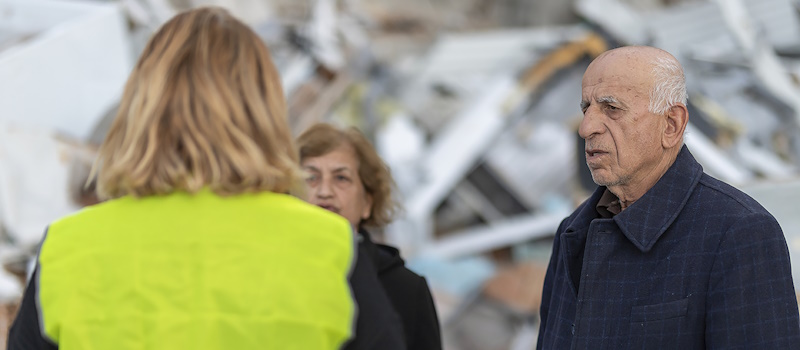Steps For Recovery Immediately After An Earthquake
Steps For Recovery Immediately After An Earthquake

Steps For Recovery Immediately After An Earthquake
An earthquake can wreak havoc on your home, lawn, neighborhood, and town. Learn what to do immediately after an earthquake as you strive to keep your family safe and begin the recovery process.
Seek Help if You’re Trapped
You might be unable to leave your home or vehicle after an earthquake. In this case, send an SOS text, bang on a wall or blow a whistle or your car horn to attract attention to yourself.
Treat Injuries
Check yourself for injuries before you help others. Then, you can begin to administer first aid to treat small wounds quickly and prevent infections. Try not to move anyone who’s seriously injured, though, unless they’re in immediate danger.
Expect Aftershocks
Smaller aftershocks could occur minutes, days or even months after an earthquake. Remember to drop, cover and hold during any aftershocks. And consider staying out of any buildings with structural damage since they could collapse.
Wear Protective Gear
Before inspecting your property, dress in a long-sleeved shirt, long pants, work boots, and gloves. This protective gear could protect you from injuries from broken glass and other debris.
Grab Your Earthquake Emergency Kit
In your emergency kit, you can access resources that could help you care for yourself and your loved ones. The ideal kit includes a shovel, rope, ax, and multitool. And it hopefully contains a three-day supply of food and water, first aid items, prescription medications, copies of your personal documents, flashlights with extra batteries, power packs, and cash.
Stay Connected
Widespread power outages could affect your ability to call or text emergency personnel, family members or friends. You can receive updates from authorities via a portable, battery-operated radio or television. Likewise, contact your local American Red Cross chapter if you need assistance finding loved ones.
Avoid Hazards
Earthquakes can create multiple dangers you may want to avoid. For example, downed power lines or damaged electrical wiring could electrocute you. And broken gas pipes could lead to gas leaks, explosions, fires, or carbon monoxide poisoning. Likewise, damaged chimneys could fall on you while damaged sewage lines can cause your toilets to overflow.
Inspect Your Home
To protect yourself and your family, only enter your home when authorities tell you it’s safe to go inside. And don’t enter if you hear strange noises or suspect your house is structurally unsound or otherwise unsafe.
Once you’re allowed inside, look for structural damage like cracks in the foundation, floors, walls, or windows. Check the gas, water and electrical lines for damage, too. If you suspect a gas leak, avoid turning on any appliances or light switches, and don’t use matches or lighters. Also, open cabinets and closet doors carefully in case the items inside have shifted. Consider carrying a fire extinguisher to put out any small fires.
Eat and Drink Thoughtfully
Check your food sources to prevent illness. Ideally, eat unspoiled food and drink potable water from intact containers. For emergency cooking, use a grill or camp stove outdoors to prevent carbon monoxide poisoning.
Document Damage
Your insurance company may want to see proof of earthquake damage. Take pictures or videos before you start cleaning up and as you encounter damage.
Recovery after an earthquake takes time. But these tips will help you protect yourself, your family and your property in the immediate aftermath.
